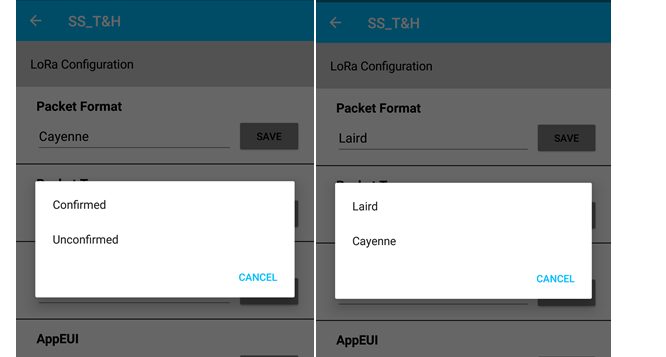To UPDATE: Last week I received a draft release (awating final sign off and release) of new f/w build, new/updated Smart-Phone management app (android .apk) and draft Application Note covering device integration with Cayenne. It came in whilst on vac and doing overseas LoRa trials so no immediate chance to test and evaluate but from what I can see new phone app allows user to choose Laird or Cayenne payload format and to choose confirm payload or not acknowledge payload delivery.

Will need to play in next few days to see if timestamp still needed to initiate payload deliveries (I dont believe it is…  ).
).
Laird team working hard to get all to released status, signed off and pushed out to user base…will update here when I hear its ready to go 